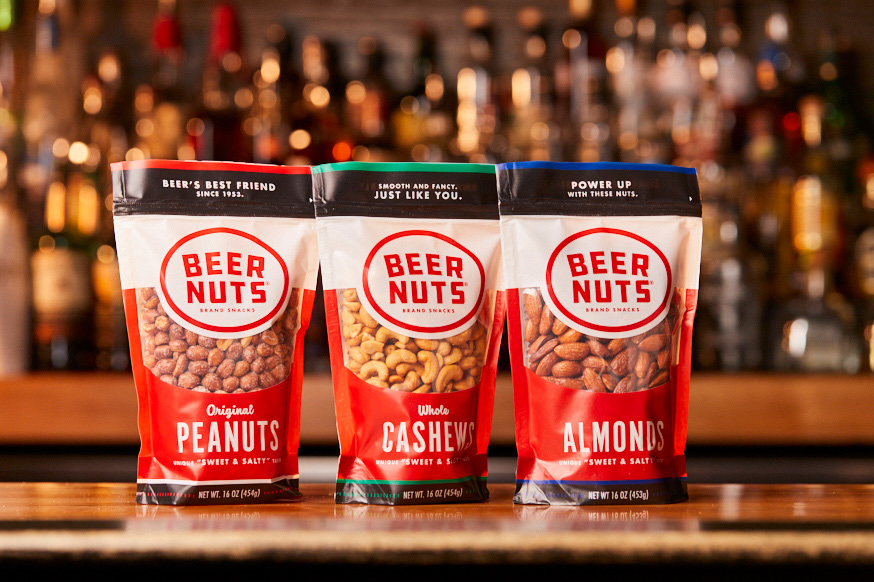
BEER NUTS operates manufacturing, packaging, shipping, and office spaces in a multi-level, 100,000 square foot facility on a 16/4 schedule. It produces a variety of snack products and exclusively manufacturers its own products with a wide range of recipes. Products are distributed through various retail outlets and direct to consumers.
In fall of 2019, ISTC and their partners completed an Economy, Energy, and Environment (E3) assessment at BEER NUTS, a small, family-owned Illinois snack facility. At the company’s request, the assessment included the feasibility of on-site solar photovoltaics (PV).
The assessment revealed electricity savings opportunities that will reduce usage by 436,000 kWh annually. Once implemented, BEER NUTS’ electricity usage will drop to 342,000 kWh. Using this estimate and additional factors, the assessment partners proposed a 260 kW solar installation costing approximately $481,000. This array, projected to generate 342,370 kWh annually, would supply 100% of BEER NUTS electricity.
Despite the sizable upfront capital investment, the array could result in first-year cost of $94,820 through a reduced power bill and federal, state, and utility incentives. With continuing energy cost savings and incentives, BEER NUTS will break even at 2.5 years of ownership and will see a reduction of $149,000 in utility costs by the 5th year.
After implementing the proposed recommendations, BEER NUTS’ operations will be on target to achieve net zero electricity, meaning that the annual electricity delivered to this facility from the grid will be less than or equal to the renewable energy exported from this facility to the grid. It will also put them on the path to net zero energy. Finally, these recommendations will reduce BEER NUTS’ carbon emissions by 329.95 metric tons. This gives them a significant competitive advantage when working with retailers like Walmart, Kroger, and Amazon that have established sustainability benchmarks both for their own operations and for their suppliers.
This case study demonstrates that a small food manufacturer in central Illinois can replace its annual electricity usage with solar at a 2.5-year payback. Manufacturing facilities across Illinois can replicate these practices with similar benefits, regardless of sector, size, location, or familiarity with solar.

